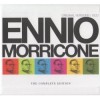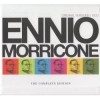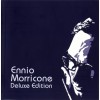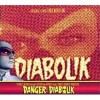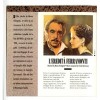Composers
Ennio Morricone, Grand Officer OMRI, (Italian pronunciation: [ˈɛnnjo morriˈkoːne]; November 10, 1928) is an Italian composer, orchestrator, conductor and former trumpet player, who has written music for more than 500 motion pictures and television series, as well as contemporary classical works. His career includes a wide range of composition genres, making him one of the world's most versatile, prolific and influential film composers of all time.[2] Morricone's music has been used in more than 60 award-winning films.
His absolute music production includes over 100 classical pieces composed since 1946. During the late 1950s Morricone served as a successful studio arranger for RCA. He orchestrated over 500 songs and worked with music artists such as Paul Anka, Chet Baker and Mina. However, Morricone gained worldwide fame by composing (during the period 1960-75) the music for Italian westerns by directors such as Sergio Leone, Duccio Tessari and Sergio Corbucci, including the Dollars Trilogy, A Pistol for Ringo, The Big Gundown, Once Upon a Time in the West, The Great Silence, The Mercenary, A Fistful of Dynamite and My Name is Nobody.
During the 1960s and '70s, he built long-term associations with directors such as Gillo Pontecorvo, known for the war film The Battle of Algiers, Bernardo Bertolucci for whom Morricone scored the 1976 epic film Novecento, Henri Verneuil, Pier Paolo Pasolini, Mauro Bolognini, Dario Argento and Elio Petri. Morricone composed music for all film genres, ranging from comedy and drama to action thrillers and historical films. He achieved commercial success with several compositions, including "The Ecstasy of Gold", the theme of The Good, the Bad and the Ugly, A Man with Harmonica, the protest song "Here's to You" sung by Joan Baez and "Chi Mai". Between 1964 and 1980 Morricone was also the trumpet player and a co-composer for the avant-garde free improvisation group Il Gruppo. In 1978, he wrote the official theme for the 1978 FIFA World Cup.
Since 1977, Morricone boosted his career in Hollywood by composing music for some of film history's most prolific American directors such as John Carpenter, Brian De Palma, Barry Levinson, Mike Nichols and Oliver Stone. Morricone has composed the music for a number of Academy Award-winning motion pictures including Days of Heaven, The Mission, The Untouchables, Cinema Paradiso and Bugsy. Other noteworthy scores include Exorcist II: The Heretic, The Thing, Casualties of War, In the Line of Fire, Disclosure, Wolf, Bulworth, Mission to Mars and Ripley's Game. In the 1980s and '90s, Morricone continued to compose music for European directors. His music for La Cage aux Folles, Le Professionnel, Once Upon a Time in America and ¡Átame! are among his best-known film scores. He has composed music for numerous television series, including the acclaimed television miniseries Moses the Lawgiver, La Piovra, The Secret of the Sahara, Marco Polo and Nostromo.
He is also associated with the Italian director Giuseppe Tornatore, composing all the music for all his films since Cinema Paradiso (1988), such as award-winning scores for Legend of 1900, Malèna, La Sconosciuta and more recently Baaria (2009) and The Best Offer (2013). Other recent Morricone works include the music for the television series Karol and scores for The End of a Mystery, 72 Meters and Fateless. In the 2000s, Morricone's music has also been reused in movies and television series such as The Sopranos, The Simpsons and Quentin Tarantino's Kill Bill, Death Proof, Inglourious Basterds and Django Unchained.
He has conducted many orchestras worldwide, including the London Philharmonic Orchestra, the New York Philharmonic and the London Symphony Orchestra. Morricone is serving as one of the main conductors of the Orchestra Roma Sinfonietta since the mid-1990s. He has conducted over 200 concerts worldwide since 2001 and is still performing regularly. In November 2013, Morricone began a world tour to coincide with the 50th anniversary of his film music career.[3][4]
In 2007, Ennio Morricone received the Academy Honorary Award "for his magnificent and multifaceted contributions to the art of film music". He has been nominated for a further five Oscars during 1979–2001. Morricone has won three Grammy Awards, two Golden Globes, five BAFTAs during 1979–92, ten David di Donatello, eleven Nastro d'Argento, two European Film Awards, the Golden Lion Honorary Award and the Polar Music Prize in 2010.
Recently Added
Biography
Ennio Morricone, Grand Officer OMRI, (Italian pronunciation: [ˈɛnnjo morriˈkoːne]; November 10, 1928) is an Italian composer, orchestrator, conductor and former trumpet player, who has written music for more than 500 motion pictures and television series, as well as contemporary classical works. His career includes a wide range of composition genres, making him one of the world's most versatile, prolific and influential film composers of all time.[2] Morricone's music has been used in more than 60 award-winning films.
His absolute music production includes over 100 classical pieces composed since 1946. During the late 1950s Morricone served as a successful studio arranger for RCA. He orchestrated over 500 songs and worked with music artists such as Paul Anka, Chet Baker and Mina. However, Morricone gained worldwide fame by composing (during the period 1960-75) the music for Italian westerns by directors such as Sergio Leone, Duccio Tessari and Sergio Corbucci, including the Dollars Trilogy, A Pistol for Ringo, The Big Gundown, Once Upon a Time in the West, The Great Silence, The Mercenary, A Fistful of Dynamite and My Name is Nobody.
During the 1960s and '70s, he built long-term associations with directors such as Gillo Pontecorvo, known for the war film The Battle of Algiers, Bernardo Bertolucci for whom Morricone scored the 1976 epic film Novecento, Henri Verneuil, Pier Paolo Pasolini, Mauro Bolognini, Dario Argento and Elio Petri. Morricone composed music for all film genres, ranging from comedy and drama to action thrillers and historical films. He achieved commercial success with several compositions, including "The Ecstasy of Gold", the theme of The Good, the Bad and the Ugly, A Man with Harmonica, the protest song "Here's to You" sung by Joan Baez and "Chi Mai". Between 1964 and 1980 Morricone was also the trumpet player and a co-composer for the avant-garde free improvisation group Il Gruppo. In 1978, he wrote the official theme for the 1978 FIFA World Cup.
Since 1977, Morricone boosted his career in Hollywood by composing music for some of film history's most prolific American directors such as John Carpenter, Brian De Palma, Barry Levinson, Mike Nichols and Oliver Stone. Morricone has composed the music for a number of Academy Award-winning motion pictures including Days of Heaven, The Mission, The Untouchables, Cinema Paradiso and Bugsy. Other noteworthy scores include Exorcist II: The Heretic, The Thing, Casualties of War, In the Line of Fire, Disclosure, Wolf, Bulworth, Mission to Mars and Ripley's Game. In the 1980s and '90s, Morricone continued to compose music for European directors. His music for La Cage aux Folles, Le Professionnel, Once Upon a Time in America and ¡Átame! are among his best-known film scores. He has composed music for numerous television series, including the acclaimed television miniseries Moses the Lawgiver, La Piovra, The Secret of the Sahara, Marco Polo and Nostromo.
He is also associated with the Italian director Giuseppe Tornatore, composing all the music for all his films since Cinema Paradiso (1988), such as award-winning scores for Legend of 1900, Malèna, La Sconosciuta and more recently Baaria (2009) and The Best Offer (2013). Other recent Morricone works include the music for the television series Karol and scores for The End of a Mystery, 72 Meters and Fateless. In the 2000s, Morricone's music has also been reused in movies and television series such as The Sopranos, The Simpsons and Quentin Tarantino's Kill Bill, Death Proof, Inglourious Basterds and Django Unchained.
He has conducted many orchestras worldwide, including the London Philharmonic Orchestra, the New York Philharmonic and the London Symphony Orchestra. Morricone is serving as one of the main conductors of the Orchestra Roma Sinfonietta since the mid-1990s. He has conducted over 200 concerts worldwide since 2001 and is still performing regularly. In November 2013, Morricone began a world tour to coincide with the 50th anniversary of his film music career.[3][4]
In 2007, Ennio Morricone received the Academy Honorary Award "for his magnificent and multifaceted contributions to the art of film music". He has been nominated for a further five Oscars during 1979–2001. Morricone has won three Grammy Awards, two Golden Globes, five BAFTAs during 1979–92, ten David di Donatello, eleven Nastro d'Argento, two European Film Awards, the Golden Lion Honorary Award and the Polar Music Prize in 2010.


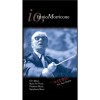
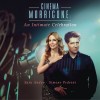
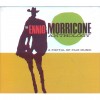
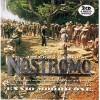
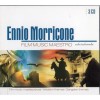
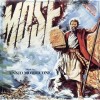
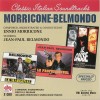
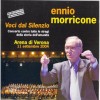
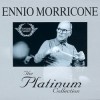
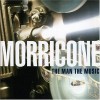
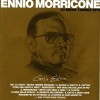


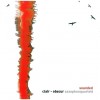
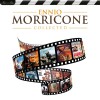
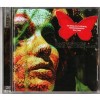
![Ennio Morricone - Super Gold Edition [6 CD Box Set]](http://static.classicalm.com/repository/composition-cover/small/25723-img1445870132872687.jpg)
